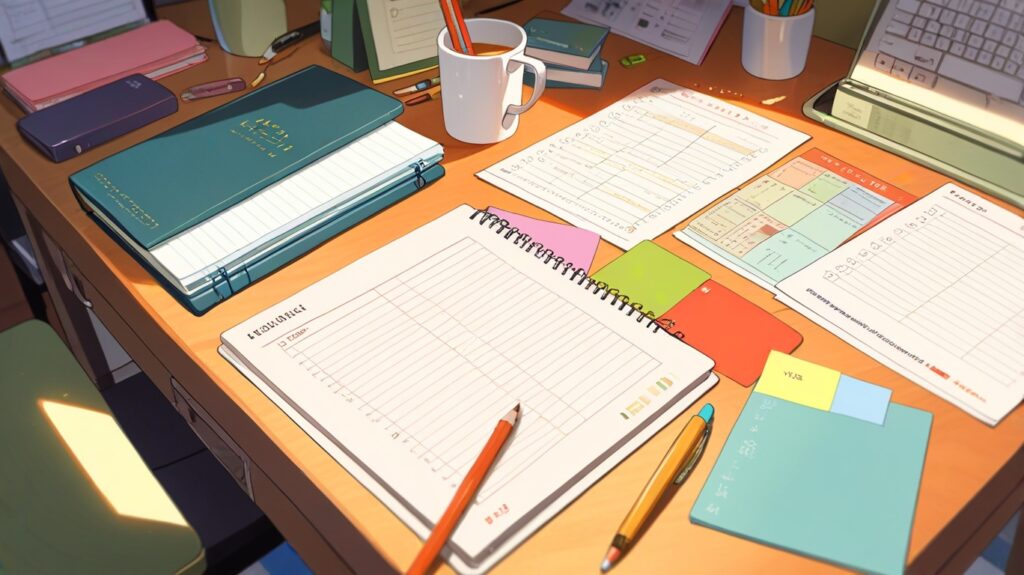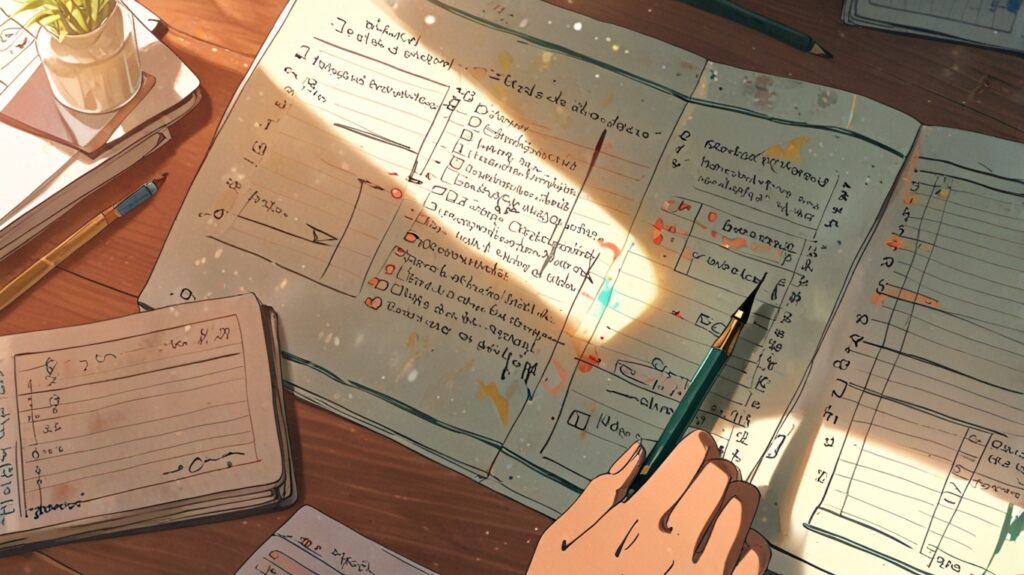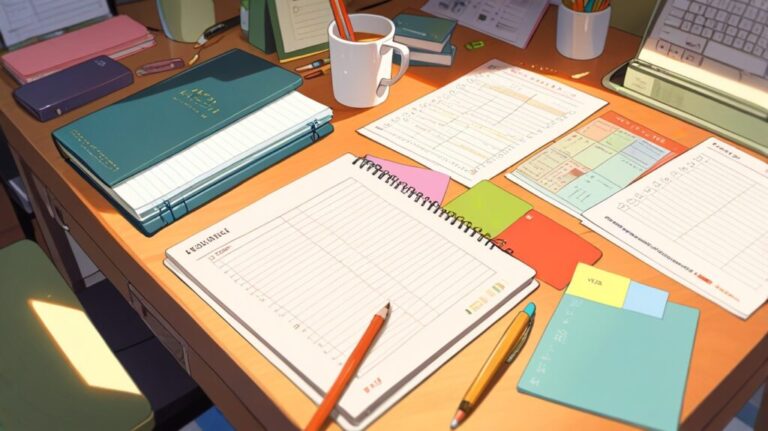How to study smarter, not harder?
How to Study Smarter, Not Harder?
Okay, let’s get one thing out of the way:
Studying harder isn’t always the answer.
If it were, everyone pulling all-nighters and drowning in textbooks would be topping their classes. But you and I both know… that’s not how it works.
You don’t need to grind until your brain feels like mashed potatoes. What you need is a smarter approach—one that gets real results without stealing your sleep, sanity, or social life.
So, how do you study smarter, not harder?
Let’s break it down like two friends sitting at a café, figuring this out together—with snacks and zero judgment.
🧠 Step 1: Stop Cramming. Start Planning.
Cramming is like chugging a gallon of water right before a marathon—it doesn’t work. Your brain needs time to absorb and store information.
So instead of panic-studying the night before:
✅ Make a study plan at the start of each week.
✅ Break subjects into bite-sized topics.
✅ Use short daily sessions instead of 5-hour marathons.
Even 30 minutes a day adds up fast. Think of it like brushing your teeth—you don’t wait until the night before a dentist appointment to do it all at once (hopefully).
🎯 Step 2: Use Active Recall (Not Passive Review)
Let me say this loud for the people in the back:
Highlighting is not studying.
Rereading is not studying.
They feel productive, but your brain’s just coasting. You want your brain to work a little—just enough to grow stronger.
That’s where active recall comes in:
- After reading, close the book and write down everything you remember.
- Use flashcards (physical or digital like Anki).
- Try teaching the topic to someone—or to your dog. Or your pillow. Doesn’t matter.
- Answer past paper questions without looking at your notes.
Retrieving info is what builds memory. It’s like lifting weights for your brain.




🔁 Step 3: Space It Out (Spaced Repetition = Superpower)
Instead of reading the same thing over and over in one sitting, review it again and again over time.
🗓 Here’s how:
- Day 1: Learn it
- Day 2: Quick review
- Day 4: Another review
- Day 7: Final check-in
This technique is backed by science. It’s called spaced repetition, and it helps your brain lock stuff in long-term instead of dumping it after the test.
Bonus: You’ll feel less stressed before exams because you’re not relearning everything from scratch.
🧩 Step 4: Match the Study Method to the Subject
Studying smarter means being strategic.
Here’s what works best for different types of material:
📐 Math/Physics:
➡ Practice problems. Every day. Reading how to solve isn’t enough—you need to actually solve them.
📖 History/Biology:
➡ Flashcards + mind maps + storytelling. You need to understand and remember facts, so connect them.
🗣 Languages:
➡ Speak it, hear it, read it, write it. Don’t just memorize vocab—use it in real sentences.
📚 Literature/Essays:
➡ Practice writing. Analyze sample texts. Plan essay structures.
One-size-fits-all study routines? Total myth. Adapt to what you’re learning.
📋 Step 5: Use the Pomodoro Technique
If you haven’t heard of this yet—prepare for your brain to love it.
The Pomodoro Technique works like this:
- 25 minutes of focus
- 5-minute break
- Repeat 4 times
- Then take a longer break (15–30 minutes)
Why it works:
- You stay fresh
- Your brain stays sharp
- You avoid burnout
- You don’t feel like you’re in study prison
This is how you stay consistent without turning into a zombie.
🖼 Step 6: Make It Visual
Your brain loves images, colors, and patterns. Use that.
✅ Create mind maps
✅ Use color-coded notes
✅ Draw timelines, charts, diagrams
Even if you’re not artistic, sketching things out helps make connections. Think of it as doodling with a purpose.
📊 Step 7: Track Your Progress
There’s something ridiculously satisfying about crossing things off a list. But beyond that—it’s also motivating.
Use:
- A daily to-do list
- A whiteboard or planner
- An app like Notion or Todoist
Seeing progress tells your brain:
“Hey, we’re doing this. We’re making it.”
Which = more motivation = more consistency = smarter studying.
🎙 Step 8: Teach It Back
Here’s one of my favorite tricks:
- Pick a topic you just learned
- Try explaining it in your own words
- Imagine you’re teaching it to a friend who knows nothing about it
If you can teach it, you truly understand it.
And if you can’t explain it clearly? That’s your brain’s way of saying, “Hey, we need to go over this again.”
🛌 Step 9: Prioritize Sleep (Yes, Seriously)
You could use every technique on this list—but if you’re running on 4 hours of sleep, your brain’s not saving any of it.
Sleep is when your brain converts short-term learning into long-term memory.
No sleep = no memory. No focus. No recall. No chill.
So don’t sacrifice sleep to study more. That’s studying harder, not smarter.
📱 Step 10: Kill Distractions (Even Just Temporarily)
If your phone is within reach? Your focus is probably already halfway gone.
Try this:
- Put your phone in another room (or a drawer)
- Use site blockers (like Cold Turkey or Forest app)
- Turn off notifications during study sessions
Studying smarter means protecting your focus like it’s gold—because it is.
✨ Bonus: Make Studying Feel Good
You’ll do more of what feels doable and rewarding.
So:
- Study in a cozy space
- Light a candle or play chill music
- Grab a favorite drink
- Use fun pens or planners if that helps you
These little rituals make studying less of a chore and more of a flow.
That’s how you keep showing up—even on tough days.
Final Thoughts
Studying smarter isn’t about cutting corners. It’s about:
✅ Learning how your brain works
✅ Using your time wisely
✅ Focusing on understanding, not memorizing
You don’t need 8-hour study marathons.
You need clarity, consistency, and confidence in your methods.
And trust me—once you stop trying to do more, and start doing what works?
Everything changes.
You’ve got this. Study smart, and let your effort actually pay off.
Related Articles from EdgyThoughts.com:
Can Moong Seeds Sprout in Microgravity?
https://edgythoughts.com/can-moong-seeds-sprout-in-microgravity/
What Are SMART Goals for Students?
https://edgythoughts.com/what-are-smart-goals-for-students/
External Resource:
Explore more about learning strategies:
Study skills – Wikipedia
https://en.wikipedia.org/wiki/Study_skills
Can Virtual Reality Treat Social Anxiety?
https://edgythoughts.com/can-virtual-reality-treat-social-anxiety/
What If Time Travel Became Scientifically Possible 2025
https://edgythoughts.com/what-if-time-travel-became-scientifically-possible-2025/





